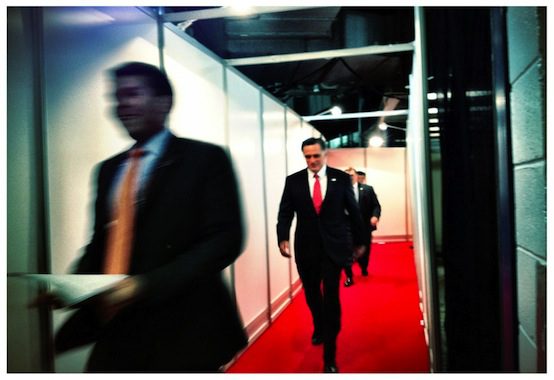The Party of Big Business

National Review‘s Ramesh Ponnuru has one of the better election post-mortems out there, and I think it ties into some of the themes running through my piece earlier this week on how to understand Patrick J. Buchanan’s political thinking and career.
After running through a compendium of indicators that the GOP has become a weak party (lost popular vote in five of six presidential elections, never achieves a hold on the Senate, etc), Ponnuru comes to the point that the upheaval of the late ’60s that tilted so many Southerners and ethnic Catholics into the GOP’s presidential coalition never resulted in these middle-class and working-class white voters trusting the GOP with their economic interests.
What they did not do is make the Republicans the party of middle-class economic interests. Most Americans associated the party with big business and the country club, and did not agree with its impulses on the minimum wage, entitlement programs, and other forms of government activism designed to protect ordinary people from cold markets. Americans came to be skeptical of government activism mainly when they thought it was undermining middle-class values (as they thought welfare undermined the work ethic). And even when voters thought Republicans were better managers of the economy in general, they thought the GOP looked out for the rich rather than the common man.
Precisely. While the GOP successfully internalized the cultural backlash of the 1960s, they never actually adopted the economic interests of this social base. And that is why it seemed so tin-eared to appeal to this base at the 2012 GOP convention as if they were all heroic entrepreneurs held back by government red-tape.
Wrong. Most of the GOP base are people that look for employment as a means to providing for a family. They see their economic interests threatened by Republicans who want to expose their retirements to the stock market, who want them to pay for their health-care out of their take home wages, who give massive bailouts to connected corporate interests, while singing about self-reliance to the working man. Social issues and the Great Society pushed enormous blocs of the New Deal coalition into the GOP. Eventually this transformation of the party transformed some of the people in it. The GOP used to be in league with family planners and the birth control movement, now it is mostly pro-life. But weirdly even as this new coalition changed the GOP on social issues, the party remained fixed to its 1930s style anti-New Dealism.
Now Ponnuru has disagreed (to put it mildly) with the remedies that Buchanan recommended in the 1990s. But it was impossible to read Ponnuru’s post-election analysis and not think of the 1992 Republican convention in which the bulk of Buchanan’s speech was about reconnecting with “conservatives of the heart,” the middle-class people who formed the New Majority. This would be the first of the six elections that Republicans would be unable to win a popular vote. After describing factory workers threatened by globalization, and a secretary who recently lost her job, Buchanan said:
My friends, these people are our people. They don’t read Adam Smith or Edmund Burke, but they come from the same schoolyards and the same playgrounds and towns as we came from. They share our beliefs and our convictions, our hopes and our dreams. These are the conservatives of the heart. They are our people. And we need to reconnect with them. We need to let them know we know how bad they’re hurting. They don’t expect miracles of us, but they need to know we care.
As Ponnuru points out, the overwhelming majority of voters say that Republican candidates do not understand people like them. Republicans made fun of Clinton for saying “I feel your pain” about the recession of the early 90s. Well, it worked. So too did George W. Bush’s protest that he was a “compassionate conservative,” although many movement conservatives absolutely hated this rhetorical concession to the fact that average people think of conservatives as ugly frat boys, wild ideologues, and aloof country clubbers.
I am actually surprised Republicans aren’t faring worse. When Republicans are asked how they will create jobs, they reference to-be-signed free trade agreements with South American nations. What does that mean to working-class whites in Ohio, people who might be uncomfortable with Sherrod Brown’s social positions but who voted for him anyway? Does anyone out there seriously hear about a free-trade agreement with Colombia and think “That’ll help us.”
And now, some twenty years later I notice that both parties try to use economic nationalism in their election efforts. Obama hit Romney on outsourcing. Romney promised to punish China for currency manipulation.
Romney’s senses on this issue were underdeveloped for sure. But I’m not seeing solutions from the commentators that recognize the problem either. I’m not sure that I’m convinced that Buchanan-style economic nationalism will enhance the economic standing of middle-Americans. But it makes more sense to me than the cocktail of policies recommended by others who have recognized the problem. It actually is difficult for Republicans to discover policies that accomplish all three goals: 1) satisfy its free-market clerisy 2) actually help people 3) be recognized by those people and earn their gratitude in votes.
So: great diagnosis Mr. Ponnuru. But what’s the treatment?
Comments